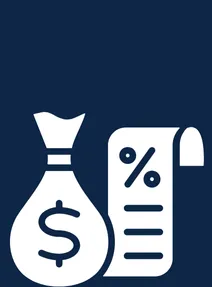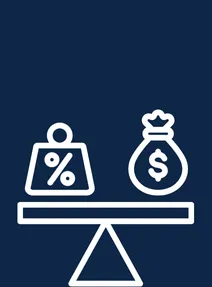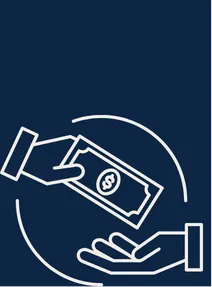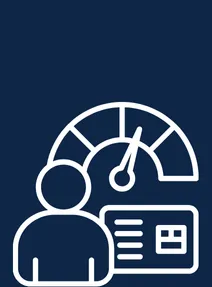Understanding
Stamp Duty
Learn what stamp duty is, how much it could cost, and what concessions may apply based on your location. Whether you're a first home buyer or investor, this guide helps you plan smarter.
Understanding Stamp Duty in Australia
Learn what stamp duty is, how much it could cost, and what concessions may apply based on your location. Whether you're a first home buyer or investor, this guide helps you plan smarter.
What is Stamp Duty?
Stamp Duty (also known as Transfer Duty) is a government tax you pay when buying property
or land in Australia. It’s one of the biggest upfront costs in the home buying process—and it’s
essential to factor it into your financial planning.
Stamp Duty is calculated based on:
The value of the property
The state or territory you're buying in
Your buyer status (e.g. first home buyer, investor, business)
Each state sets its own rules, rates, and concessions, so the amount you’ll pay can vary
significantly.
What is Stamp Duty?
Stamp Duty (also known as Transfer Duty) is a government tax you pay when buying property or land in Australia. It’s one of the biggest upfront costs in the home buying process—and it’s essential to factor it into your financial planning.
Stamp Duty is calculated based on:
The value of the property
The state or territory you're buying in
Your buyer status (e.g. first home buyer, investor, business)
Each state sets its own rules, rates, and concessions, so the amount you’ll pay can vary significantly.
How Much Is Stamp Duty?
There’s no flat fee—stamp duty is a tiered tax, meaning the higher the property value, the more
you’ll pay. More importantly, rates, thresholds, and concessions vary across each state and
territory, so your location plays a big role in how much you'll owe.
Here are some examples across Australia:
New South Wales (NSW):
Buying a $750,000 property could cost you around $29,000 in stamp duty. First home
buyers may be eligible for partial exemptions or First Home Buyer Choice options under
recent reforms.Queensland (QLD):
Stamp duty on the same $750,000 property is often lower, especially for first home buyers,
who can receive concessions on homes valued under certain thresholds.Victoria (VIC):
First home buyers may be fully exempt from stamp duty on homes under $600,000, and
receive concessions up to $750,000.South Australia (SA):
Stamp duty is calculated based on the purchase price. While there’s no standard exemption,
targeted support for first home buyers and off-the-plan purchases may apply.
Western Australia (WA):
First home buyers may be exempt on homes up to $430,000, with concessions available for
homes valued up to $530,000.Australian Capital Territory (ACT):
The ACT uses a different system called conveyance duty. Eligible first home buyers may
receive full exemptions depending on income and property type.Tasmania (TAS):
First home buyers of established homes may be eligible for a 50% stamp duty discount.
Duty rates vary depending on property value.Northern Territory (NT):
Stamp duty applies to all property purchases, but there are specific grant programs for
eligible buyers that can help offset upfront costs.
You can use a stamp duty calculator or check with your state revenue office to get an accurate
estimate based on your location and circumstances
How Much Is Stamp Duty?
There’s no flat fee—stamp duty is a tiered tax, meaning the higher the property value, the more you’ll pay. More importantly, rates, thresholds, and concessions vary across each state and territory, so your location plays a big role in how much you'll owe.
Here are some examples across Australia:
New South Wales (NSW):
Buying a $750,000 property could cost you around $29,000 in stamp duty. First home buyers may be eligible for partial exemptions or First Home Buyer Choice options under recent reforms.
Queensland (QLD):
Stamp duty on the same $750,000 property is often lower, especially for first home buyers, who can receive concessions on homes valued under certain thresholds.
Victoria (VIC):
First home buyers may be fully exempt from stamp duty on homes under $600,000, and receive concessions up to $750,000.
South Australia (SA):
Stamp duty is calculated based on the purchase price. While there’s no standard exemption,targeted support for first home buyers and off-the-plan purchases may apply.
Western Australia (WA):
First home buyers may be exempt on homes up to $430,000, with concessions available for
homes valued up to $530,000.Australian Capital Territory (ACT):
The ACT uses a different system called conveyance duty. Eligible first home buyers may receive full exemptions depending on income and property type.
Tasmania (TAS):
First home buyers of established homes may be eligible for a 50% stamp duty discount. Duty rates vary depending on property value.
Northern Territory (NT):
Stamp duty applies to all property purchases, but there are specific grant programs for eligible buyers that can help offset upfront costs.
You can use a stamp duty calculator or check with your state revenue office to get an accurate estimate based on your location and circumstances
When is Stamp Duty Paid?
Stamp duty is usually due within 30 days of settlement, but deadlines vary by state:
NSW & VIC: Within 3 months or by settlement.
QLD: On or before the day of settlement.
It’s important to prepare ahead of time—late payments can result in penalties or interest.
When is Stamp Duty Paid?
Stamp duty is usually due within 30 days of settlement, but deadlines vary by state:
NSW & VIC: Within 3 months or by settlement.
QLD: On or before the day of settlement.
It’s important to prepare ahead of time—late payments can result in penalties or interest.
What Does Stamp Duty Cover?
Stamp duty is paid to the government to legally transfer ownership of a property from seller to
buyer. It applies whether you’re buying:
A home (new or existing)
Vacant Land
An investment property
Off-the-plan property
It's collected by the relevant state or territory revenue office.
What Does Stamp Duty Cover?
Stamp duty is paid to the government to legally transfer ownership of a property from seller to buyer. It applies whether you’re buying:
A home (new or existing)
Vacant Land
An investment property
Off-the-plan property
It's collected by the relevant state or territory revenue office.
Who Can Get Exemptions or Concessions?
You may be eligible for a discount or exemption if:
You're a first home buyer
You're a pensioner (in some states)
You're buying off-the-plan
The property is being transferred between family members
Each state has different rules and thresholds. It's always best to check your eligibility or speak
to a mortgage expert
Who Can Get Exemptions or Concessions?
You may be eligible for a discount or exemption if:
You're a first home buyer
You're a pensioner (in some states)
You're buying off-the-plan
The property is being transferred between family members
Each state has different rules and thresholds. It's always best to check your eligibility or speak to a mortgage expert.
Stamp Duty by Property Type
Established Homes: Standard rates apply.
Vacant Land: Often lower rates; concessions may still apply
Off-the-Plan Purchases: Some states offer reduced duty if construction hasn't started.
Investment Properties: Typically taxed at full rates, with limited or no concessions.
Can You Add Stamp Duty to Your Loan?
In most cases, stamp duty cannot be added to your home loan—it needs to be paid upfront. That’s why
it’s important to include it in your savings and upfront cost planning.
Stamp Duty by Property Type
Established Homes: Standard rates apply.
Vacant Land: Often lower rates; concessions may still apply
Off-the-Plan Purchases: Some states offer reduced duty if construction hasn't started.
Investment Properties: Typically taxed at full rates, with limited or no concessions.
Can You Add Stamp Duty to Your Loan?
In most cases, stamp duty cannot be added to your home loan—it needs to be paid upfront. That’s why it’s important to include it in your savings and upfront cost planning.
Tools & Support
Need help estimating your costs?
Use a Stamp Duty Calculator (or ask us to do it for you!)
Need Help Navigating Stamp Duty?
Stamp duty can be confusing—but you don’t have to figure it out alone.
Let the team at Win Square Finance help you:
Estimate your duty
Understand state-based concessions
Factor it into your home loan plan
Disclaimer:
Stamp duty laws and exemptions change from time to time. While we aim to provide general guidance, it's always best to consult your local state or territory revenue office or speak to a qualified mortgage broker to confirm the most up-to-date information for your property purchase.
Related Topics
Every mortgage payment is more than just “renting money.” This article will show you how your repayments are split between interest and your loan balance — and how it impacts the life of your loan.
Lenders use this ratio to decide how much you can borrow. Learn what’s considered a good DTI, how it’s calculated, and smart ways to improve yours before applying.
Understand how lenders determine your borrowing power and what factors impact loan approval. Learn how to improve your eligibility and maximise your home loan options.
Discover the five key factors lenders evaluate when assessing loan applications and learn how each plays a role in securing mortgage approval.
A one-time fee that protects the lender when your home loan deposit is less than 20%. It helps you buy a property sooner with a smaller deposit.
A high LVR could mean extra costs, while a low LVR can save you thousands. Find out why lenders care so much about this number.
Tools & Support
Need help estimating your costs?
Use a Stamp Duty Calculator (or ask us to do it for you!)
Need Help Navigating Stamp Duty?
Stamp duty can be confusing—but you don’t have to figure it out alone. Let the team at Win Square Finance help you:
Estimate your duty
Understand state-based concessions
Factor it into your home loan plan
Disclaimer:
Stamp duty laws and exemptions change from time to time. While we aim to provide general guidance, it's always best to consult your local state or territory revenue office or speak to a qualified mortgage expert. to confirm the most up-to-date information for your property purchase.
Related Topics
Every mortgage payment is more than just “renting money.” This article will show you how your repayments are split between interest and your loan balance — and how it impacts the life of your loan.
Lenders use this ratio to decide how much you can borrow. Learn what’s considered a good DTI, how it’s calculated, and smart ways to improve yours before applying.
Understand how lenders determine your borrowing power and what factors impact loan approval. Learn how to improve your eligibility and maximise your home loan options.
Discover the five key factors lenders evaluate when assessing loan applications and learn how each plays a role in securing mortgage approval.
A one-time fee that protects the lender when your home loan deposit is less than 20%. It helps you buy a property sooner with a smaller deposit.
A high LVR could mean extra costs, while a low LVR can save you thousands. Find out why lenders care so much about this number.
© 2025 Estate Seeker.com.au - All Rights Reserved. Content on this site is for educational purposes only.
Always consult with a professional before making any investment decisions.









